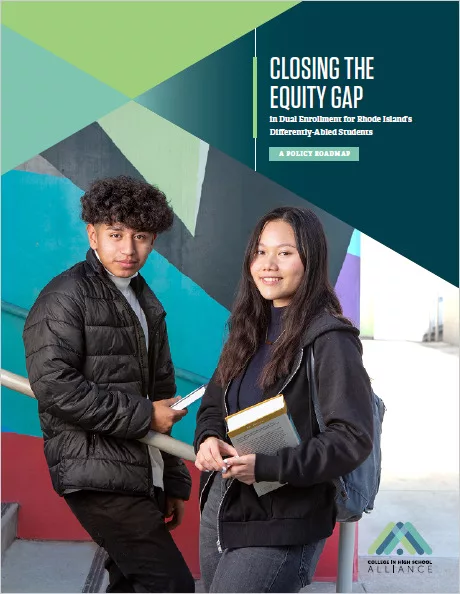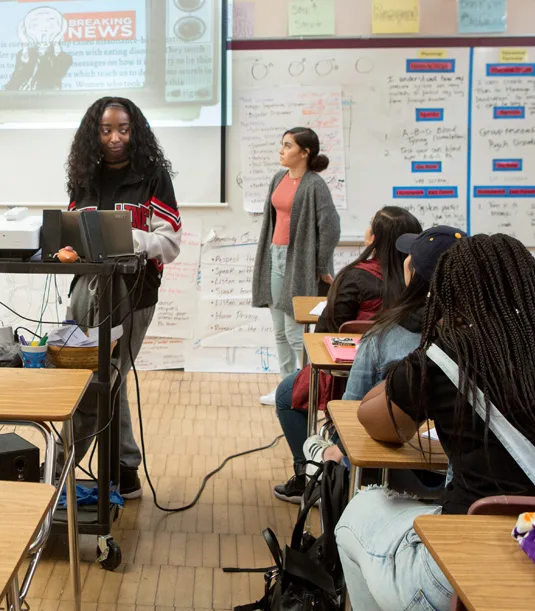Closing The Equity Gap in Dual Enrollment for Rhode Island’s Differently-Abled Students: A Policy Roadmap
Rhode Island
Early college opportunities offer enormous benefits for students and families. Not only can these courses help high school students earn valuable college credit for free, they also prepare students for college level work and improve their chances of graduating high school, enrolling in college, and completing college degrees on time. Best of all, these exciting benefits apply to students of all abilities.
Rhode Island has worked diligently to increase access to these programs for all students, but still equity gaps persist. However, the state is well poised to improve dual enrollment participation and achievement for all students, especially those with different abilities.
Through the joint efforts of the Rhode Island Department of Education and the Office of the Postsecondary Commissioner, Rhode Island was chosen to receive technical assistance from the College in High School Alliance (CHSA). CHSA, with support from its Steering Committee member organization KnowledgeWorks, has been supporting Rhode Island’s efforts to increase dual enrollment participation for its differently-abled students.
Using their recently released framework, KnowledgeWorks has created this unique landscape analysis for Rhode Island. This policy roadmap identifies both the barriers faced by differently-abled students in accessing dual enrollment as well as specific action steps Rhode Island can take to address these barriers.
Recommendations
This report contains six primary recommendations for Rhode Island, grouped under two themes, to advance access to dual enrollment for differently abled students:
- Increasing Access
- Use Dual Enrollment to Illuminate a Clear Pathway to Postsecondary Education for Differently-Abled Students
- Reimagine the Use of Individual Learning Plans for Differently-Abled Students
- Identify Any Barriers to Dual Enrollment Participation for Differently-Abled Students
- Increase Awareness of Dual Enrollment Opportunities for Students with Disabilities and Their Families
- Supporting Success
- Collaborate to Develop a Suite of School Resources
- Explore Funding Mechanisms to Design Model Processes and Develop Supportive Resources
Access the paper
Closing The Equity Gap in Dual Enrollment for Rhode Island’s Differently-Abled Students: A Policy Roadmap


